
A new beginning for Berlin tourism?
by Silke BartlickFor weeks Berlin was out of bounds to tourists. On May 15, restaurants began to reopen under certain conditions, and now also hotels. We took a look around the Kurfürstendamm, Berlin's famous promenade and shopping area.
Danuta Lippoth is pleased. About 30 guests are expected to arrive in the course of the afternoon. This means that Hotel Augusta will be almost one-third full. A good start after the long weeks of lockdown, during which the small private hotel was only allowed to accommodate a few business travelers. The entire team was on reduced working hours and the hotel was only open eight hours a day. Now the reception desk is again staffed around the clock and everything is in place to ensure smooth operations in these exceptional times.
A lot has changed
On every floor of the old villa there are hand sanitizer dispensers, the staff wear protective masks, and the remote controls for TV sets are disinfected and shrink-wrapped. All mini bars have been cleared out, instead room service has been reinstated. And the many regular guests will also have to adjust to changes at breakfast: instead of the popular buffet, they can now choose from a menu — preferably the evening before. At that point, they are also asked to indicate the time slot between seven and twelve o'clock they want to be in the bright breakfast room on the first floor. Because, of course, social distancing rules must also be observed here.
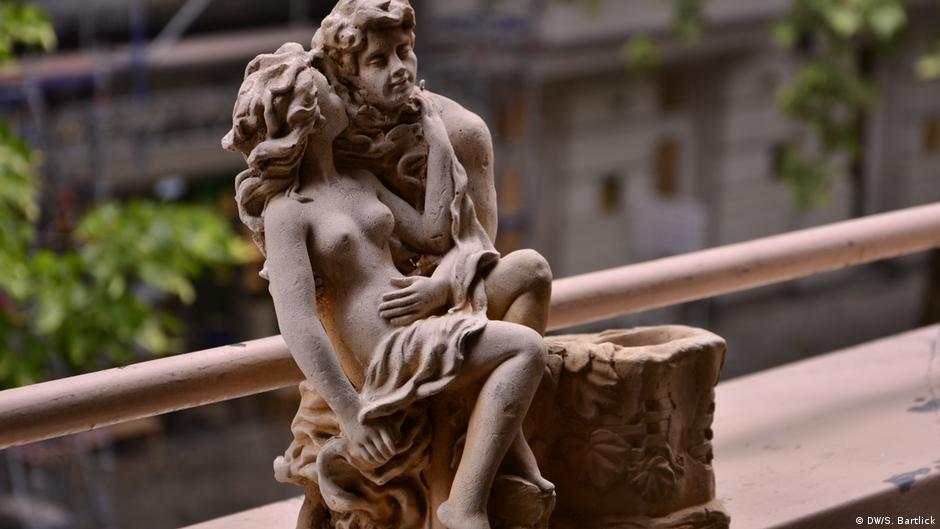
Berlin registered 34 million overnight stays in 2019, which was a record year. And everything indicated that it would continue like this. But then the coronavirus hit. And with that came the lockdown. Many hotels were completely closed for weeks, others only managed to keep a few floors open.
Total collapse
Burkhardt Kieker, the managing director of Visit Berlin, the city's official travel portal said on Friday (May 22) on RBB's Inforadio, that the average occupancy rate was 3 to 5%. In this regard, he was glad that things were starting to pick up again. Nevertheless, the industry is facing serious challenges. It is not possible to recoup the losses of recent weeks. Because there are still no international guests or conferences and congresses. Added to this are all the restrictions. For example, a room must be left unoccupied for 48 hours before a new guest can move in.
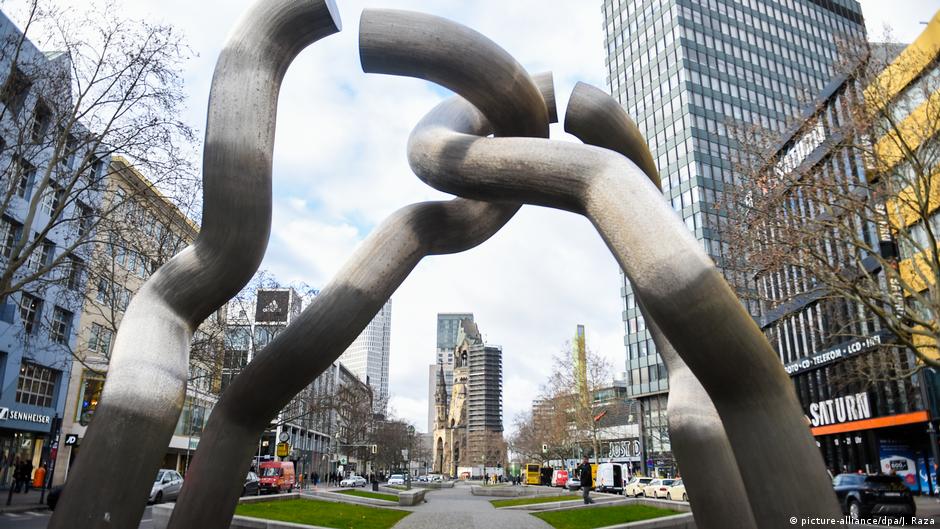
Danuta Lippoth hopes that this nightmare will be over soon. That there won't be another wave of coronavirus infections. And that her hotel will remain as popular as it has been in the past. In 2019, occupancy was at 95%. It is quiet, yet centrally located in the green Fasanenstrasse road, less than 50 meters away from the Kurfürstendamm. Perhaps, says Danuta Lippoth, things will improve again in September and October. These are particularly popular months for city travelers. In order to attract more guests now, she has lowered the prices a little.
The future is uncertain
This is out of the question for Stefan Athmann, the general manager of the Hotel Bristol Berlin, an elegant establishment on the Kurfürstendamm. He says that although it's sad to see such a beautiful, big hotel largely without guests, offering discounts is not an option. "We have to make sure that we sell the rooms sensibly," he says, "but it won't be easy, because only German guests are allowed to travel initially." Athmann wants to offer them packages. Two or three nights, for example, with a three-course menu in the attached Bristol Grill.
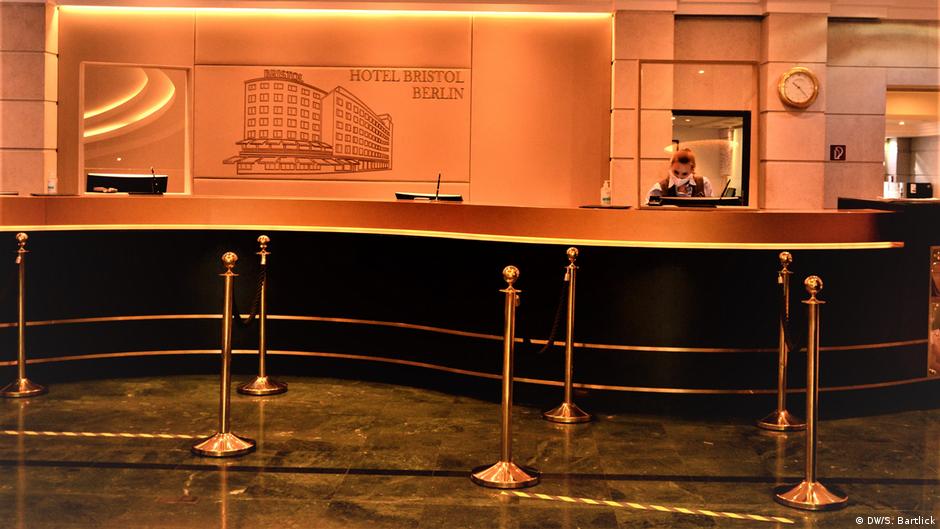
He says that now, after weeks of home schooling and home office, it could be a good time to indulge yourself, to allow yourself to be pampered for a few days — while adhering to all the safety precautions, of course — and perhaps experience Berlin in a completely different way. He then speaks of friends from Bavaria who visited him privately over the weekend and explored the capital by bike. They went to Grunewald, to Tiergarten and Friedrichshain. They had a relaxed look at the German capital and experienced it in a completely new way.
Berlin in unusual times
In fact, Berlin is still in an unusual state — decelerated, and a little more relaxed than usual. Fewer people on the streets, fewer people on buses and trains. Most restaurants and shops are open again, with restrictions on social distancing and hygiene, and mostly with limited opening hours. Some people are doing better and others not so well. At Starbucks, just opposite the Bristol, the tables and chairs that have been stacked together pile up against the walls. No one can or wants to sit down here.
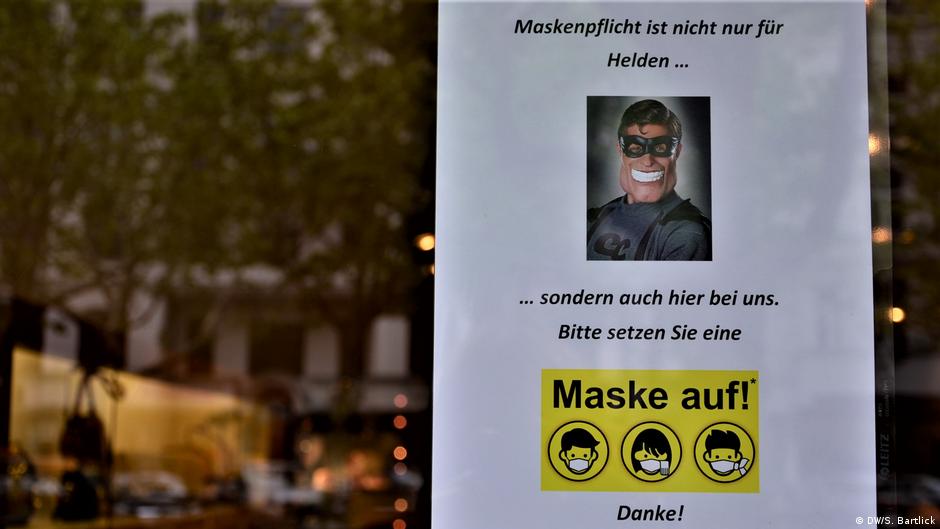
But in front of the Apple store there is a dense crowd. A lot of security and some customers. Even those who have registered for the visit online must first check-in, then go to have their temperature taken and finally wait in the queue. Nowhere else in Berlin is temperature measured as a rule — neither in front of shops nor in hotels and restaurants. And so far, no one with a raised temperature has wanted to shop at the Apple store. Fortunately. In the branch of the fashion chain COS, you are not even allowed to try anything on at the moment, but at Michael Kors you can. There, each garment is then treated with a hot steamer. But the machine is often not used, because the wealthy customers from abroad are absent.

According to Hystreet, a company specializing in monitoring customer frequency, no other shopping area in Germany has seen a greater loss of shoppers than Kudamm road — 63 percent compared to the previous year. This particularly affects the designer boutiques, the sales staff at Gucci, Prada, Bulgari or Cartier find themselves kicking their heels.
A big gob with a big heart
"All crap," is how in true brash Berlin fashion, known as Berliner Schnauze — or Berlin snout — the cook at Beers Imbiss describes the current situation. Normally people patiently queue here for a Currywurst sausage, at night even celebrities — actors and politicians — have been spotted here, so well-chilled champagne is always in stock. But now? "Look," he says. "Nothing is happening. No taxis, no tour buses. There are not even bottles for the homeless to collect, for the deposit."
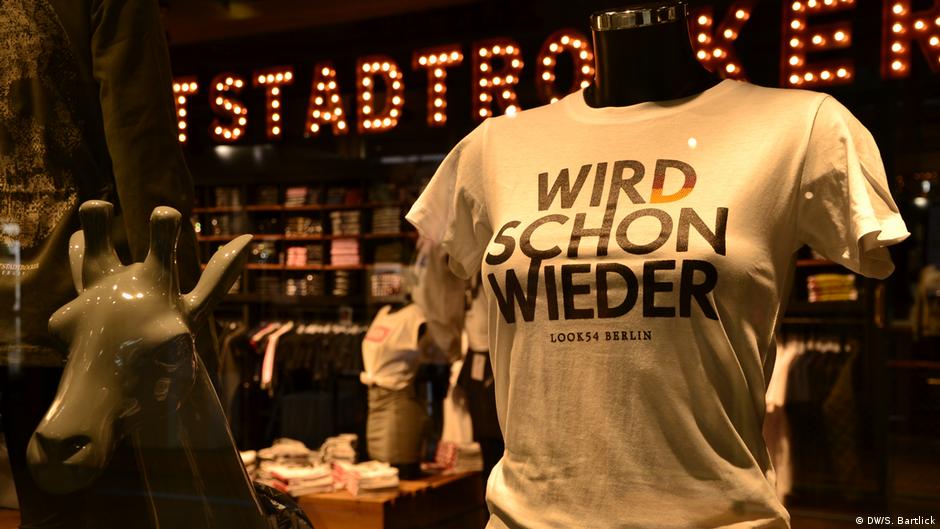
Actually, these kind of encounters alone make a visit to Berlin worthwhile. And there is a lot to do in the city — despite all the coronavirus restrictions. Parks and gardens, restaurants, flea markets and even some outdoor swimming pools are open again. And most museums and galleries. You can only enter with a facemask. And everywhere, care is taken to ensure that only a limited number of people are in the rooms at any given moment. But that means you get to enjoy the art almost on your own!
A new tourism concept
"We don't believe that people are in the mood for the hustle and bustle of the big city at the moment," the staff at Visit Berlin say with conviction. And because it's best to keep your distance ideally outdoors, the tourism organization is encouraging visitors to explore green Berlin and its surroundings with all its lakes and rivers. Everyone can find their favorite place to relax here. "Berlin, includes this" is the motto of the current advertising campaign. Stefan Athmann, general manager of the Bristol Hotel, is delighted with the concept. He says it's exactly what his friends from Munich did.
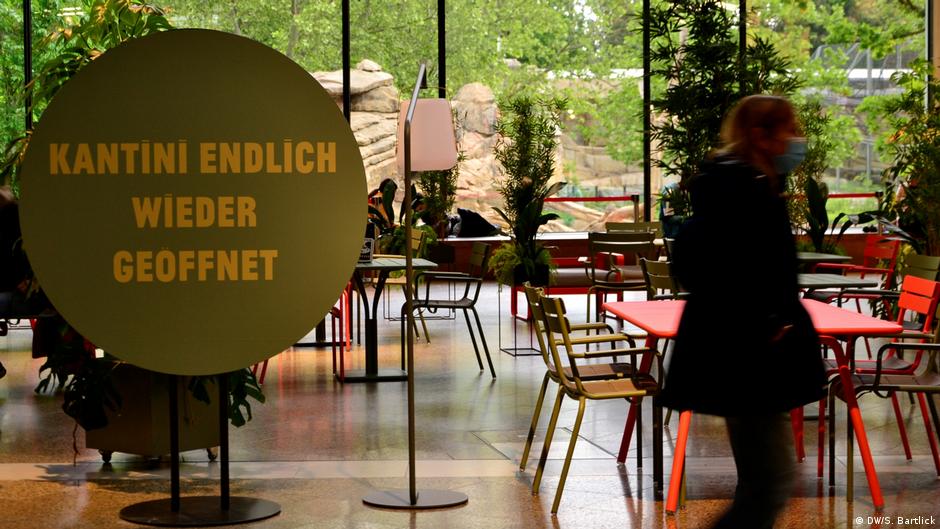
Now all it takes is for people to come. First from Germany, soon probably also from Austria, Switzerland and the Netherlands. And hopefully from everywhere else again in the not too distant future. Until then, the hoteliers will have to prevail, while they ventilate empty rooms, flush toilets and continue to enforce reduced working hours.
Coronavirus: The consequences for tourism
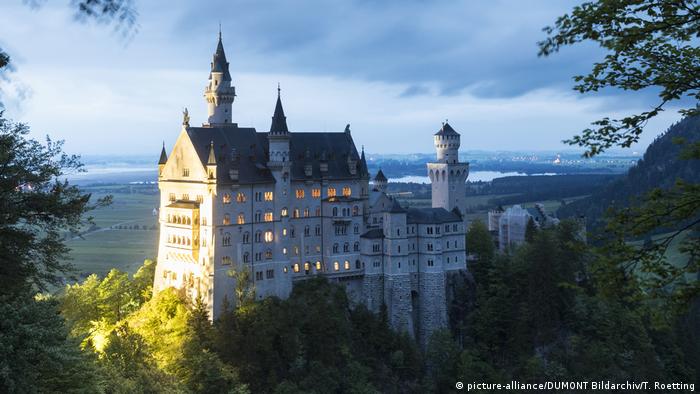
Neuschwanstein Castle — since Tuesday June 2 — is again open to tourists. Previously, the Bavarian state government had made a whole range of tourist attractions such as the boat trip on Lake Starnberg or Nymphenburg Castle accessible again. One of the attractions that will remain closed due to the coronavirus because of restricted space is the royal house at Schachen.
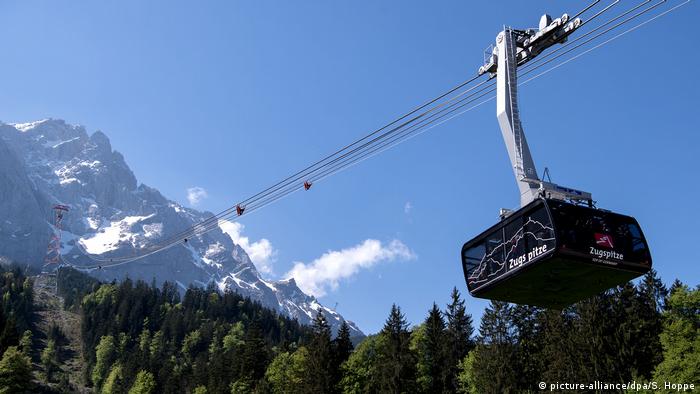
The Zugspitze, Germany's highest mountain at 2962 meters (9718 ft.), is accessible again. From Saturday (May 30) the cable cars and chair lifts in Bavaria are allowed to run again. Physical distancing and compulsory facemasks are a matter of course, the number of passengers is limited to 35% of the transport capacity. The first mountain huts are also opening again.
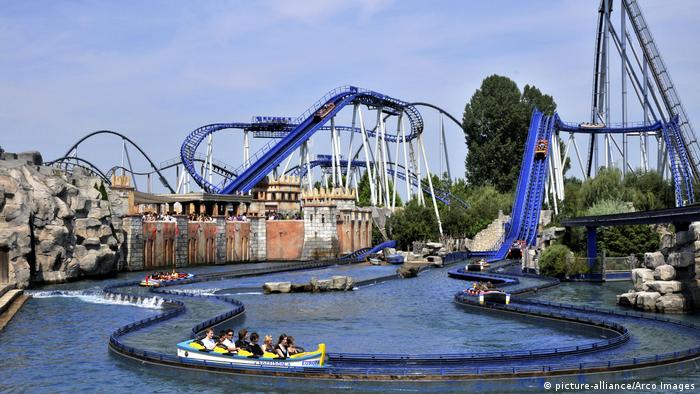
This is the first large amusement park in the world to resume operations. Rules are: Facemasks must be worn in the queue and every second seat must be left empty. More than 2.5 million tickets have already been requested online for the coming weeks. The Europapark Rust, located in the triangle of Germany, France and Switzerland, attracted 5.7 million visitors last year.
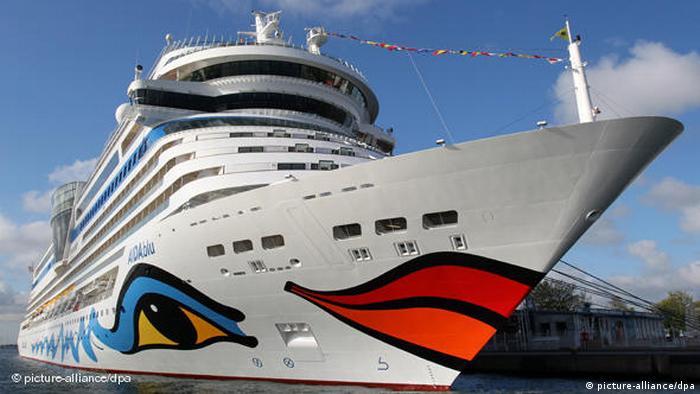
The 14 cruise ships of the German Rostock-based shipping company Aida Cruises will remain in port until July 31. In many holiday destination countries the regulations for international tourism are still being discussed, the company announced. The Italian shipping company Costa is also extending the cruise suspension for its fleet until July 31.
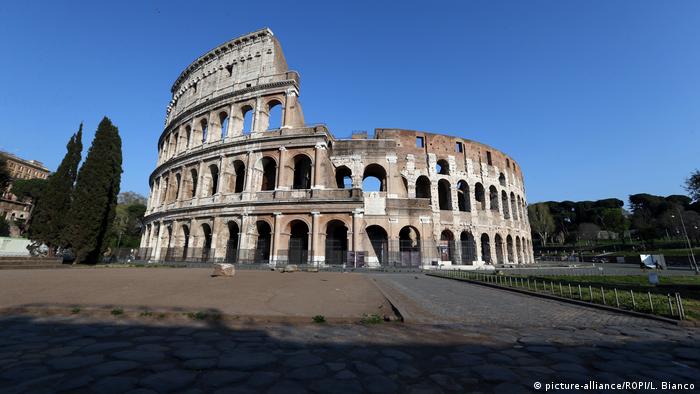
Rome's 2,000-year-old landmark can finally be visited again from June 1, and the Vatican Museums will also reopen on that day. Ancient Pompeii, south of Naples at the foot of Mount Vesuvius, is already welcoming visitors again, but only those from within the country. From June 3, however, foreign tourists will be able to return to Italy and visit the ancient sites.
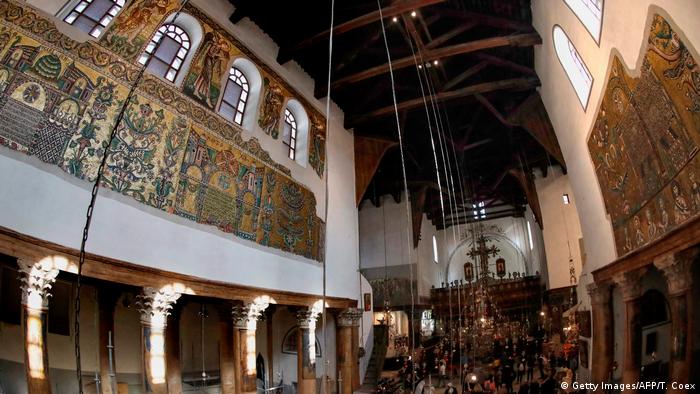
From today (May 26) one of the most sacred places of Christianity will be open to the public again. Only 50 people can enter the Church of the Nativity in Bethlehem; wearing facemasks is compulsory. While Jews have already been allowed to pray again at the Western Wall also known as the Wailing Wall, in Jerusalem, the Al-Aqsa Mosque on the Temple Mount is to open to Muslims at the end of the week.
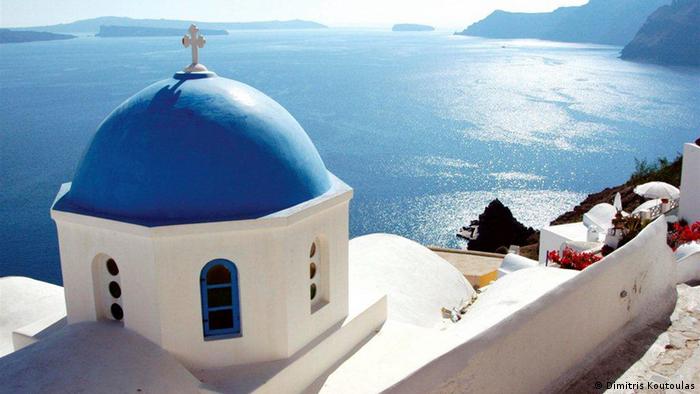
From Monday (May 25), Greece's islands will be accessible again by plane and ferry for domestic tourists. Taverns, bars and cafes are reopening nationwide. Ferries are to sell only 50% of their tickets, and taverns are only allowed to occupy half of their tables. The list of countries from which foreign tourists can enter Greece without a two-week quarantine will be announced at the end of May.
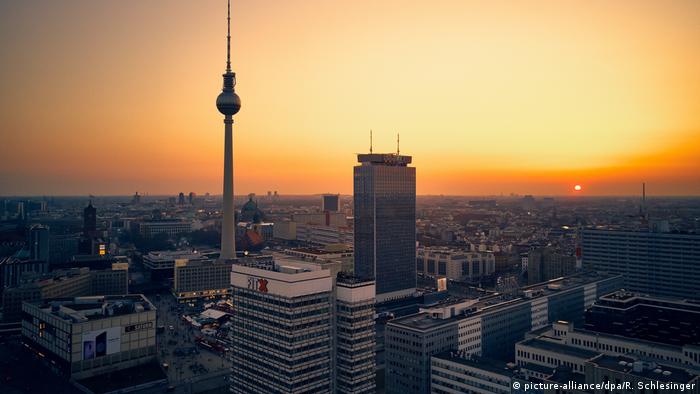
Starting on May 22, visitors will again be allowed on to the viewing platform and restaurant of the Berlin TV tower. Only about 50 people are allowed in at any one time, masks are mandatory, and tickets must be reserved online. At 368 meters (1207 ft.), the Berlin Television Tower is the tallest building in Germany and a popular tourist hotspot.
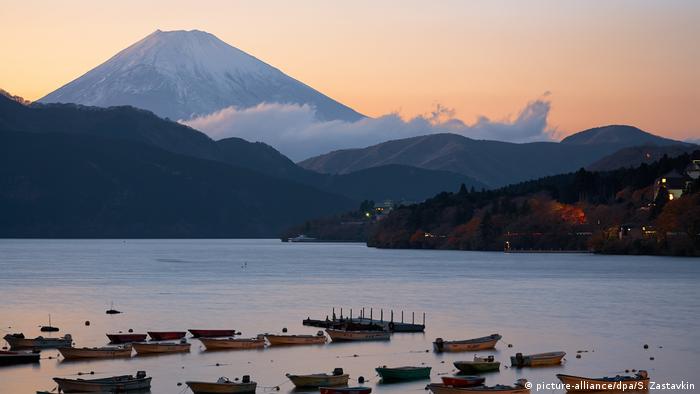
Due to the coronavirus pandemic, Japanese authorities have imposed a climbing ban on Mount Fuji on May 18, and all four routes on the mountain have been closed. Normally during the climbing season in summer, which lasts only two months, thousands of people climb the slopes of the volcano daily in single file. At 3,776 meters (12,389 feet), the mountain is the highest in Japan.
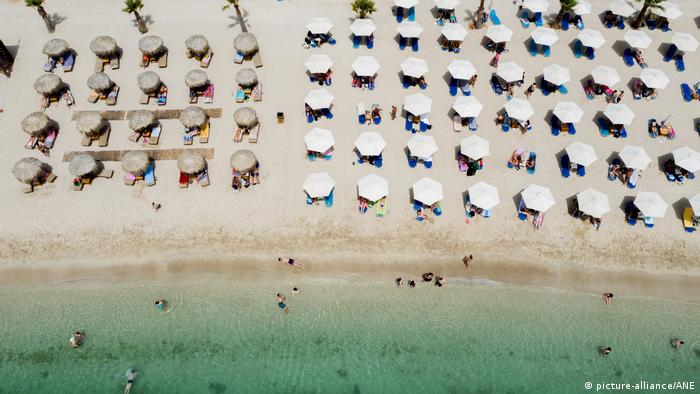
In Greece, all beaches in the country were reopened on May 16. According to media reports, strict regulations were observed: The distance between parasols had to be four meters and only two sunbeds per parasol were allowed. Beach bars could only sell packaged food and not serve alcohol. Is this a preview of summer holidays in Europe despite the coronavirus pandemic?
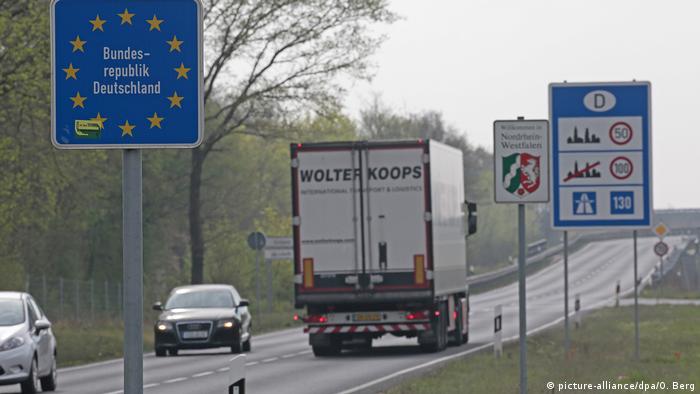
From May 15, people entering North Rhine-Westphalia from other EU countries and Schengen states no longer have to go into a 14-day home quarantine. The other German states are to follow in the next few days. Iceland, Norway, Liechtenstein and Switzerland are also exempt from the quarantine regulations, making travel to neighboring countries much easier.
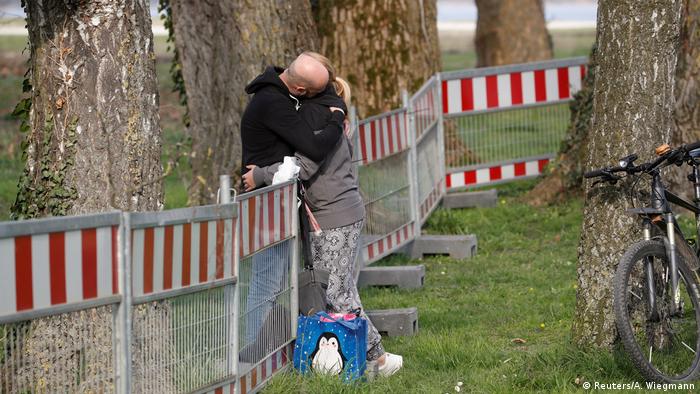
On May 16, Germany opened its borders to neighboring countries France, Austria and Switzerland. There will only be random checks, and no more checks at all for Luxembourg. However, there must still be "good" reasons for crossing the border. And love is accepted as such. For example, German-Swiss couples at Lake Constance (photo) — can visit each other again.
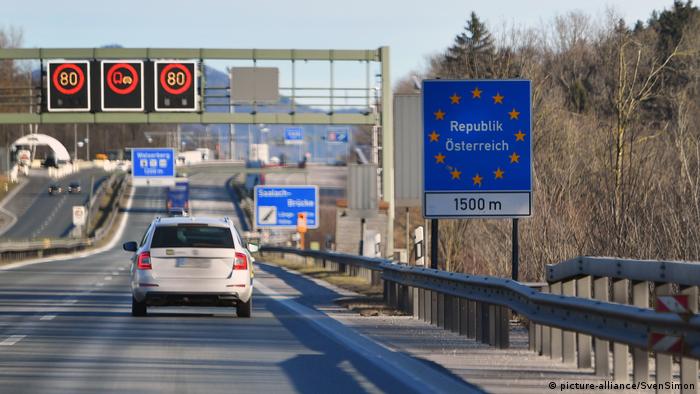
The Austrian government has announced that the border with Germany will be opened on June 15. Tourism in Austria has been effectively suspended due to the coronavirus pandemic. On May 29, hotels and other accommodation in Austria will be allowed to reopen. Austrian tourism is heavily dependent on guests from Germany.
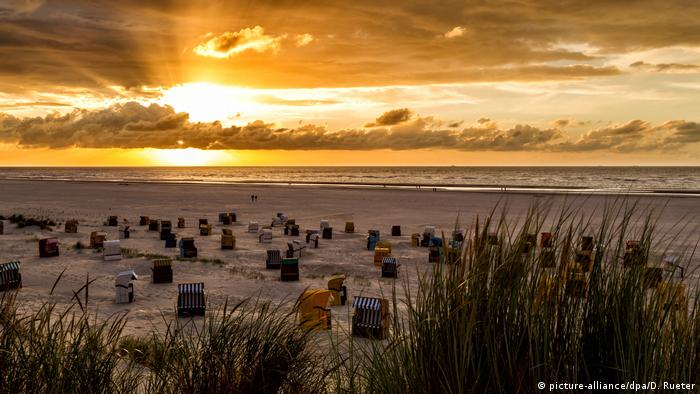
Borkum, Juist (photo) and the other East Frisian islands are happy to be able to greet tourists again, even if it's a limited surge of visitors. Since May 11, overnight stays in holiday apartments and camping sites throughout Lower Saxony have been allowed again. Holidaymakers must stay at least one week. However, day tourists and hotel overnight stays are still prohibited.
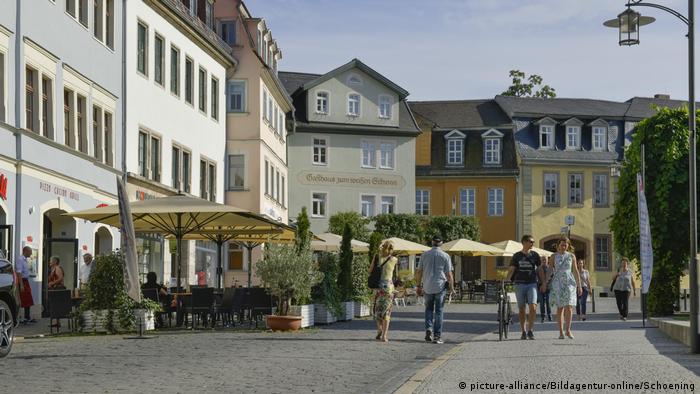
Thuringians are pioneers. Weimar is the first city in Germany to reopen restaurants and cafés. Since May 6, people have been sitting in the sun with a coffee or beer and enjoying a step back towards normality — while keeping their distance. Restaurants and hotels in the other federal states will also resume their limited operations by the end of May.
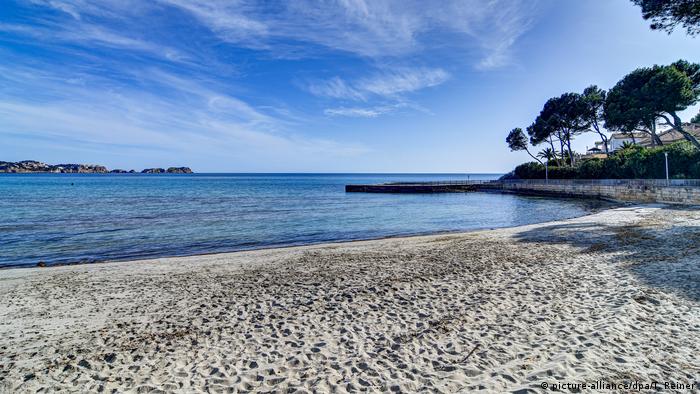
Holidaymakers might also be able to travel to the Balearic or Greek Islands in summer. "If there are very few new infections there and the medical care works, one could also think about a summer holiday in those places", the government's commissioner for tourism, Thomas Bareiss, told the Tagesspiegel newpaper. Long-distance travel, however, is likely to be cancelled this summer.
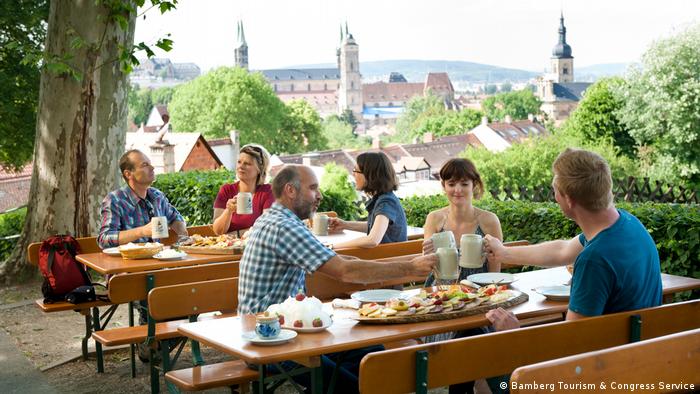
On May 18, the coronavirus lockdown for Bavaria's outdoor gastronomy ended and the beer gardens have reopened. Of course under strict conditions — waiters have to wear masks, for example. On May 25, indoor gastronomy is to follow, restaurants and cafes, with a limited number of guests. From May 30, the operation of hotels, and holiday homes in Bavaria will be allowed again.
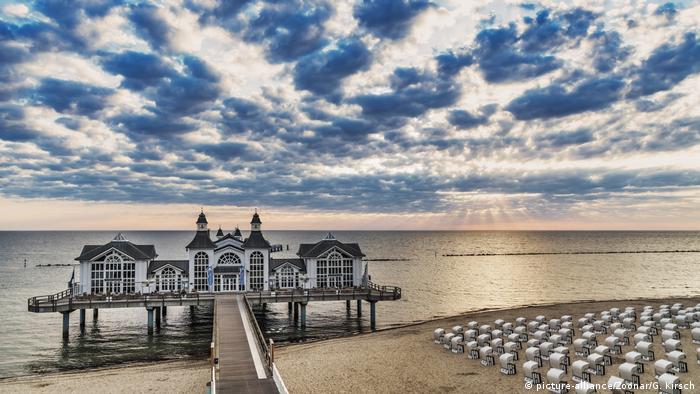
Mecklenburg-Western Pomerania is the first federal state to reopen to tourists from all over Germany: From May 25th they can again stay in hotels, guest houses and holiday homes. 60 percent of the bed capacity will be released for this purpose. This means that the tourist season can start with the Whitsun holidays in popular holiday regions like the Baltic Sea and the Mecklenburg Lake District.
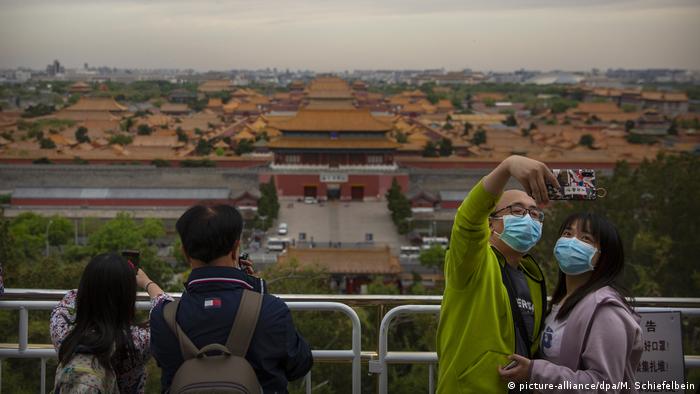
One of Beijing's most important sights can be visited again after months of closure due to the coronavirus crisis. From Friday (May 1), visitors are allowed back into the palace complex on Tiananmen Square under strict security conditions. Instead of the previously usual 80,000 visitors, a maximum of 5,000 guests are to be admitted daily.

Germany extended on Wednesday (April 29) its worldwide travel warning due to the coronavirus crisis to at least June 14. The Federal Foreign Office said that "severe and drastic restrictions in international air and travel traffic and worldwide entry restrictions, quarantine measures and restrictions on public life in many countries can still be expected."
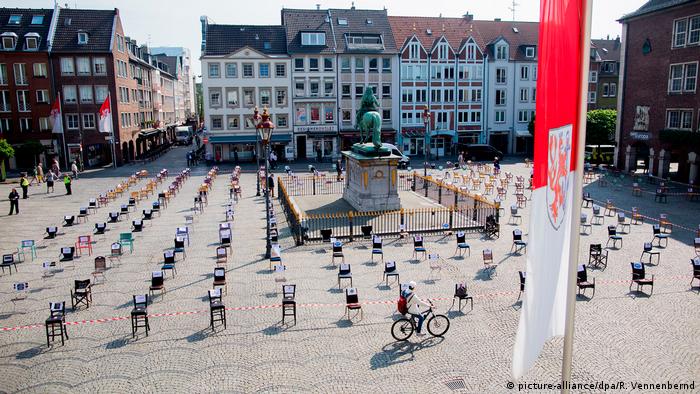
Gastronomes have set up empty chairs in central locations in Germany, such as here in Düsseldorf, to draw attention to their situation in the coronavirus crisis. "Without direct financial aid, most of our businesses will not survive," says Guido Zöllick, President of the German Hotel and Restaurant Association. "Suppliers and partners are also increasingly being drawn deeper into economic crisis."
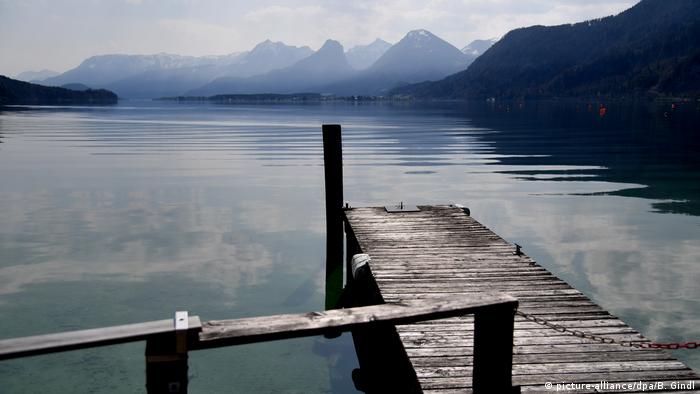
Austria's Chancellor Sebastian Kurz is confident that the border between Austria and Germany will soon be opened again for tourists. Both countries are on the right track in containing the spread of the coronavirus, Kurz told ARD television on Wednesday (April 22). This is the precondition for a revival of tourism. He did not name an exact date for the opening of borders.
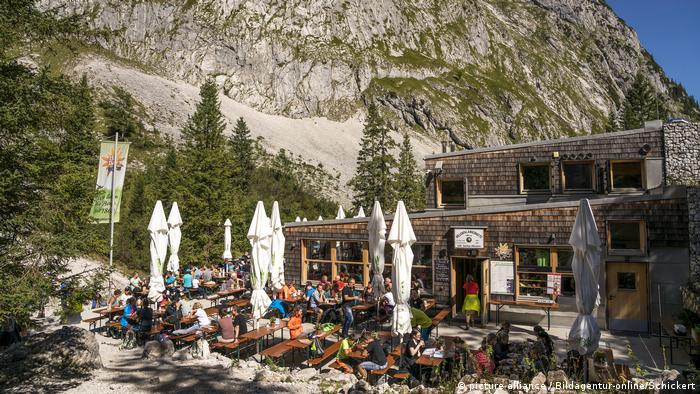
"A normal holiday season with crowded beach bars and busy mountain huts will not be possible this summer. That would be unacceptable," German Foreign Minister Heiko Maas said on Tuesday (April 21). However, he did not rule out the possibility that borders for tourists could be reopened before the summer and that holiday travel with certain restrictions might be possible.
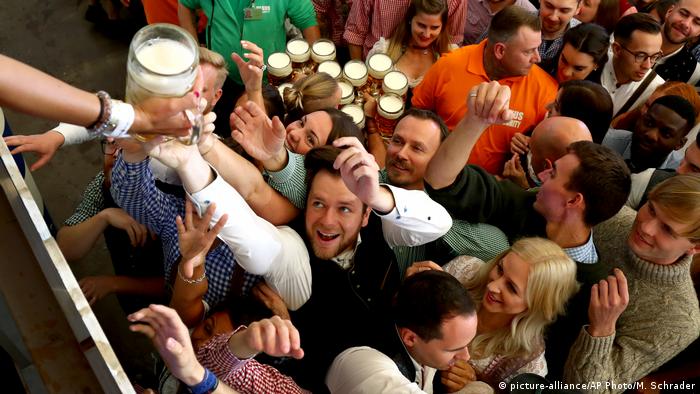
The Oktoberfest has been cancelled this year due to the coronavirus pandemic. Bavaria's premier Markus Söder and Munich's mayor Dieter Reiter announced the decision on Tuesday (April 21). "It pains us, and it is a great pity", said Söder. But in times of the coronavirus, the danger of infection at the folk festival, which attracts about six million visitors annually, would just be too great.
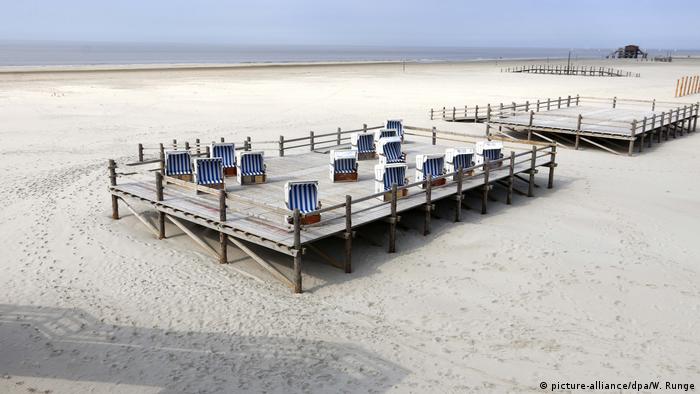
The Prime Minister of Schleswig-Holstein, Daniel Günther, hopes that tourism on the North and Baltic Seas will be revived in the summer. Despite the coronavirus crisis, he "definitely did not write off the summer tourism business," he said on April 19. While they are now proscribed, stays in secondary residences, holiday homes and finally hotels could be made possible again in three steps.
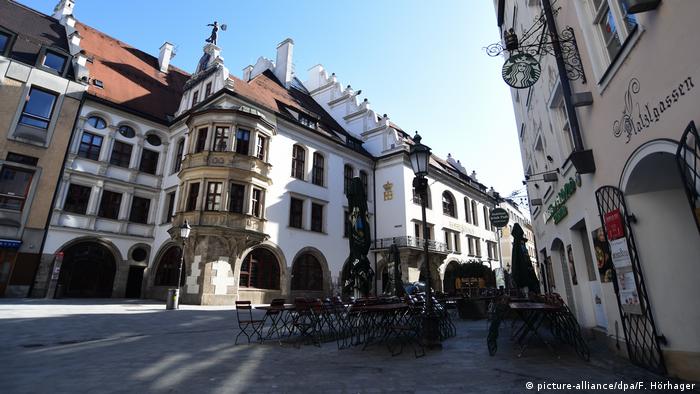
The government resolutions (April 15th) stipulate that people in Germany should continue to refrain from making private trips. The worldwide travel warning is to be upheld. Accommodation offers are only available for necessary and explicitly non-touristic purposes. Restaurants will also remain closed. Tourism is one of the industries that has been hit hardest in the coronavirus crisis.
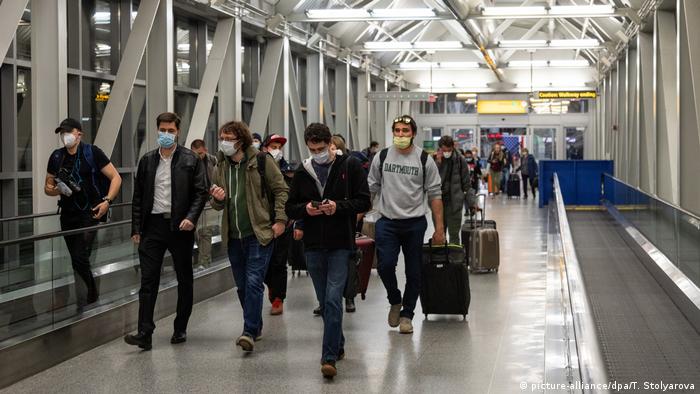
The entry ban imposed by the USA on foreign nationals from Europe will remain in place for the time being. Italy and Spain are still struggling with the coronavirus crisis and France has just extended measures to contain infections by the virus, US President Donald Trump said on Monday (April 13). The entry ban will remain in force until the countries show signs of improvement, Trump said.
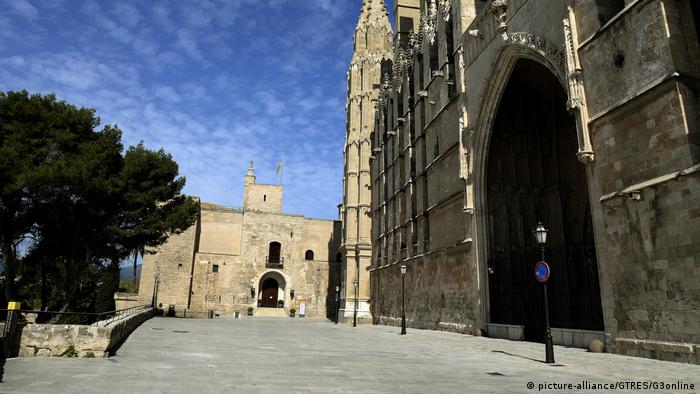
Hotels, cafes and souvenir shops are closed. It is unusually empty outside the Royal Palace in Palma (picture). The Easter season on the Spanish holiday island of Mallorca has been cancelled. The Majorcan hotel association now fears that due to the uncertain situation in the main markets of Germany and Great Britain, some hotels will remain closed even during the peak season.
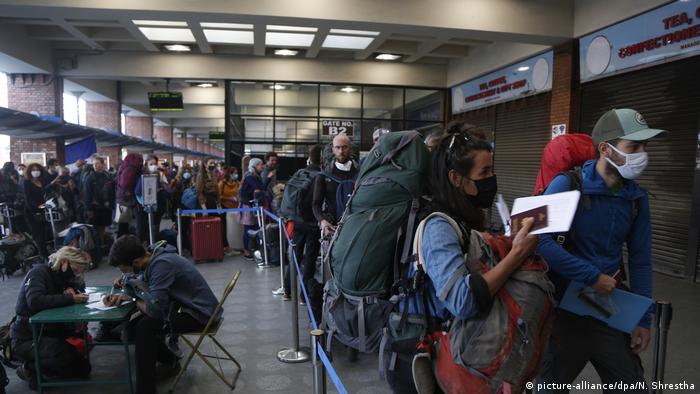
By Sunday (April, 5) 205,000 travelers had been brought back to Germany, according to the federal government. Airplanes from Peru and Colombia were the most recent to take off. More than 40,000 Germans however are still stranded abroad. Foreign Minister Heiko Maas said on Twitter. "We will continue our efforts to find solutions for the travelers who have not yet been able to return."
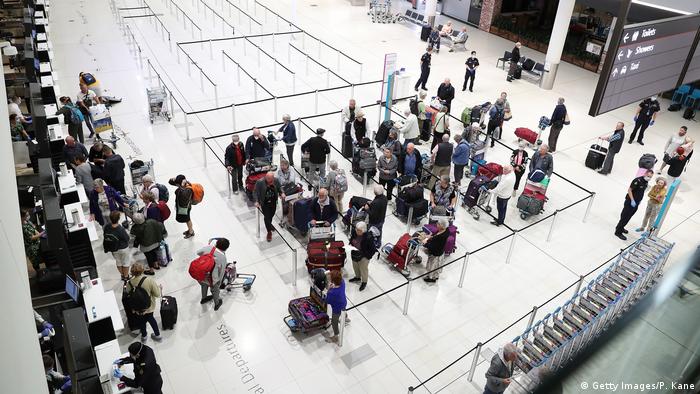
Thousands of foreigners stranded in New Zealand because of the coronavirus crisis will be able to leave the Pacific state from Friday (April 3). On Thursday, the New Zealand government announced that it would allow the "safe and orderly departure of tens of thousands" of stranded people. Earlier it had stopped return flights by foreign governments.

A light installation on the Matterhorn in Switzerland is giving a sign of solidarity and hope in the fight against the corona virus. Encouraging messages are also being projected on to many other tourist landmarks around the world. "Stay safe", "Stay at home" could be see on Monday evening on the Great Pyramid in Giza near the Egyptian capital Cairo.
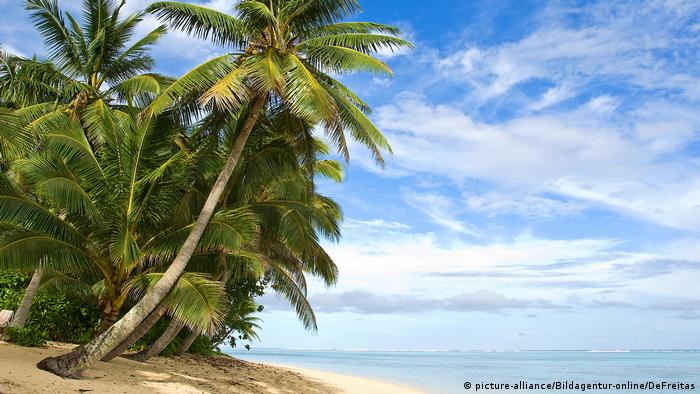
The repatriation process for Germans stranded abroad is ongoing. Until now, main destinations such as Egypt or Morocco have been addressed. "It will be more difficult with countries that only have small groups of scattered adventure vacationers," said the crisis manager of the German Foreign Office. Tourists in the Pacific Islands must first be rounded up in New Zealand and then flown out.
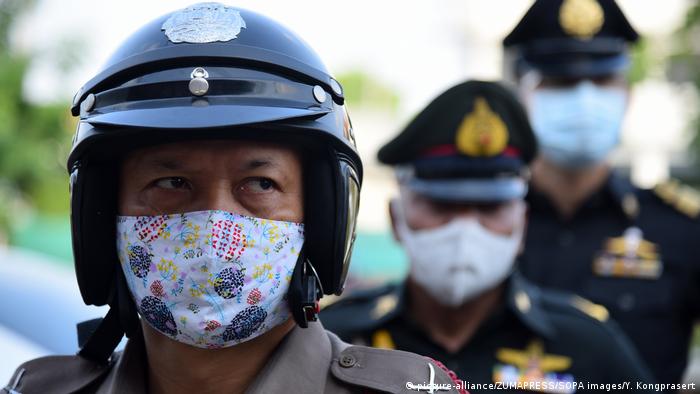
After long delays Thailand closed its borders on Thursday (March 26). The authorities had delayed the decision for a long time to safeguard the tourism sector. Now tens of thousands of tourists are stuck in the Southeast Asian tourist country. The German government has so far not organized a repatriation for German tourists, as Thailand is not considered a risk region.
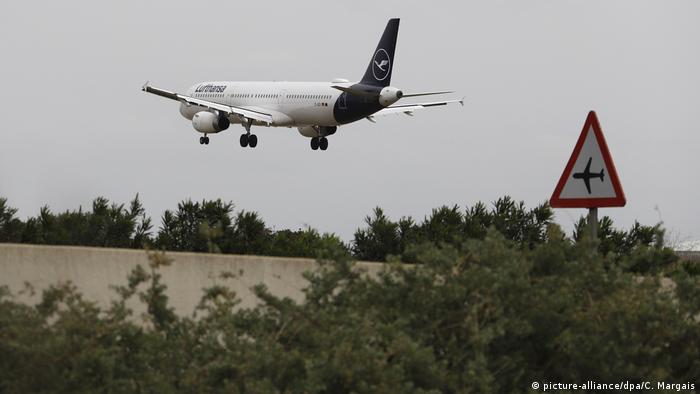
The German foreign ministry announced on Wednesday (March 25) that, together with tour operators, it had brought back more than 150,000 Germans from abroad. Tour operator TUI added that almost 95 percent of the tourists who were stranded because of the coronavirus pandemic are now back in Germany. They were mainly flown out from Egypt, Spain, Portugal and the Cape Verde Islands.
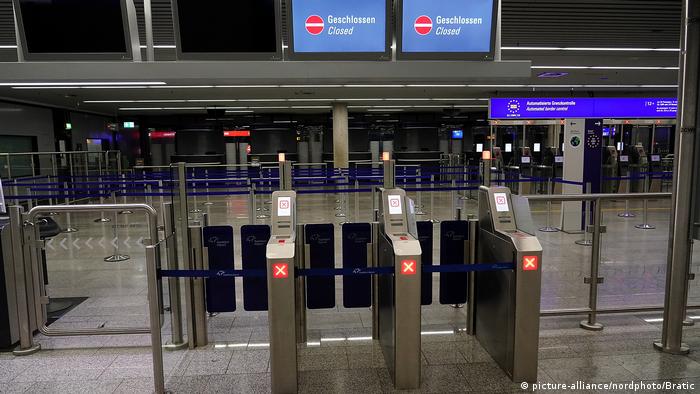
German Foreign Minister Heiko Maas has said that the warning against traveling abroad will remain in effect until the end of April. "This includes the Easter holidays," he said on Twitter. "Stay at home! Protect yourself and your fellow human beings," he appealed to the population. Many tour operators have also extended their travel ban until the end of April.

The EU Commission is supporting the return to Europe of tens of thousands of long-distance travellers. It intends to cover a large part of the costs, since most of the flight connections have been cancelled. "We are here to help them return," Commission President Ursula von der Leyen said in a video message.
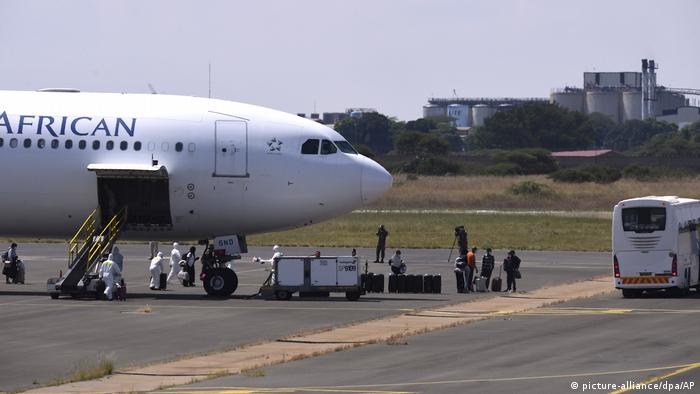
African countries have also ordered numerous measures to prevent the spread of the coronavirus. South Africa, for example, has banned access to the country for people coming from risk areas. Nigeria is monitoring the temperature of travelers at airports, ports and borders. Cameroon has closed its borders indefinitely.
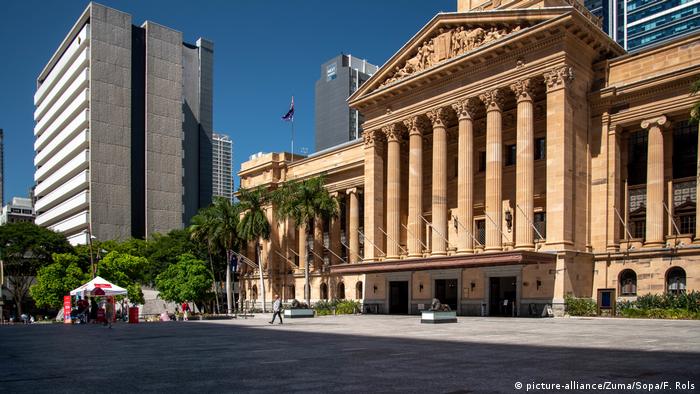
The Australian government has imposed an indefinite ban on all foreign travel by its citizens. Prime Minister Scott Morrison also called on all Australians who are abroad to return home. A 14-day compulsory quarantine for all people entering the country has already been in place for some time. Here, too, it has become quiet in the cities.
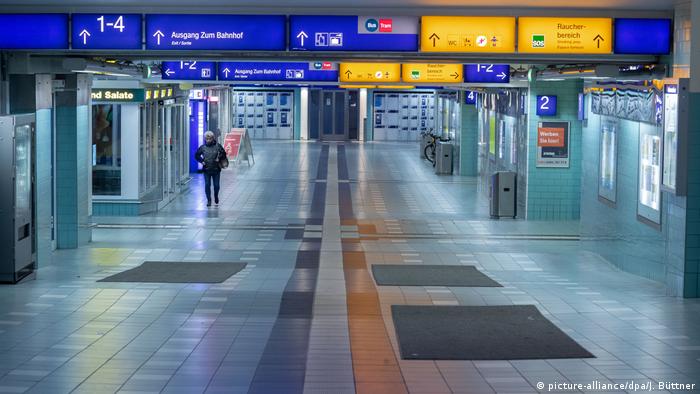
The coronavirus crisis is impacting travelers and the tourism industry with full force. Several tour operators, including TUI, has cancelled trips, and some airlines are shutting down. Germany's federal and state governments decided that overnight stays should only be used for "necessary and explicitly not for touristic purposes". Germans are to "no longer take holiday trips at home and abroad".
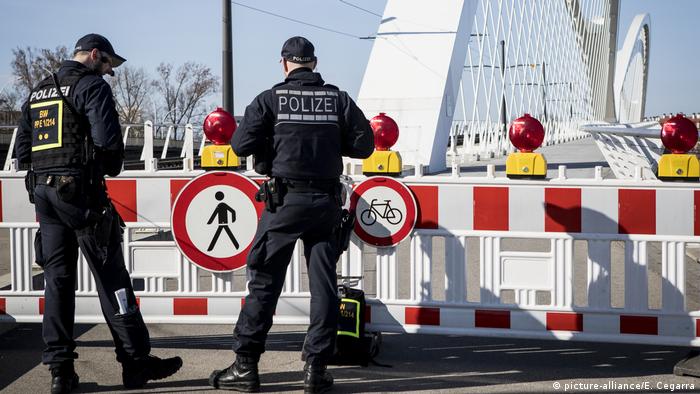
The EU has closed its entire external borders for 30 days as from Tuesday (March 17, 2020). "All travel between non-European countries and the European Union will be suspended for 30 days," French President Macron said in a television address on Monday (March 16,2020) evening. The Schengen Area, which includes several non-EU countries, has also closed its external borders.
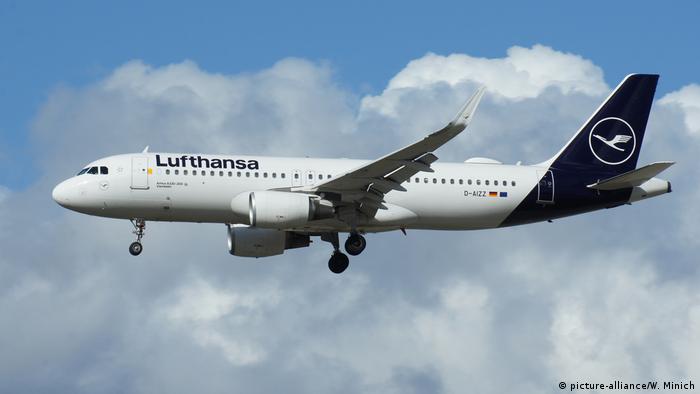
More and more countries are sealing their borders, and many flights are cancelled. With special flights Lufthansa and its subsidiary Eurowings want to bring up to 6,500 stranded holidaymakers from the Caribbean, the Canary Islands and on Mallorca back to Germany. In Morocco, the German government is assisting German tourists who are stranded there due to their return flights being cancelled.
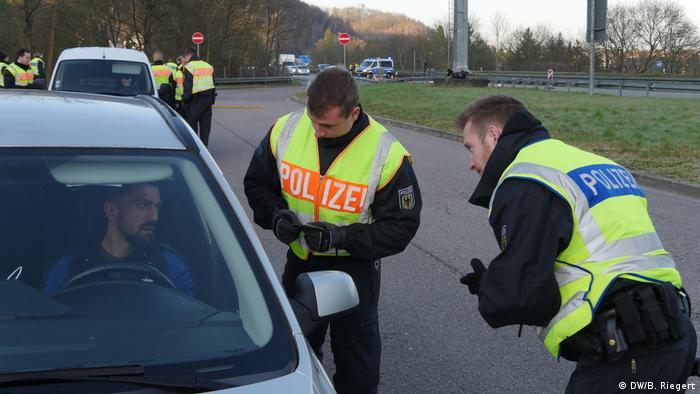
On Monday morning (March 16, 2020), Germany introduced entry controls at the borders with the five neighboring countries: France, Denmark, Luxembourg, Austria and Switzerland. Border crossings will be reduced to what is strictly necessary. Goods can continue to pass through, including commuters, but not travelers without good reason. The duration of the measures remains open.
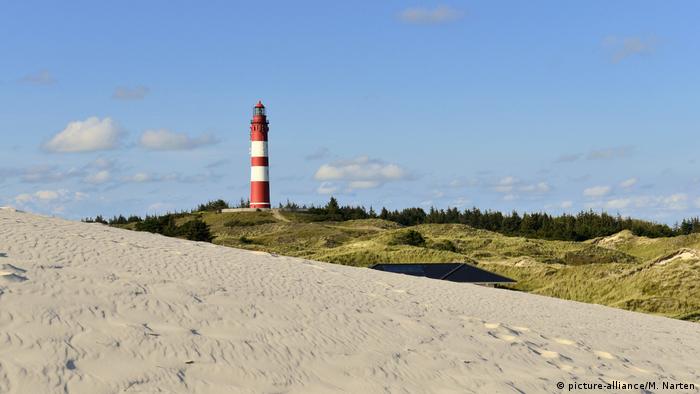
Whether Spiekeroog, Sylt or Rügen: Vacation on the northern German islands in the North and Baltic Sea is no longer possible as of March 16, 2020. Those who had already moved into their accommodation have been asked to return home. The health systems of the islands are not equipped to deal with large numbers of infected people. Regulations are to follow for mainland tourism.
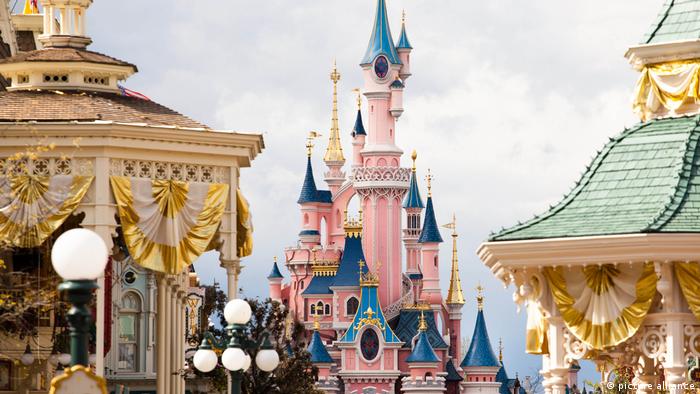
Disneyland Paris and Disney World Florida have closed until the end of the month. Disney Cruise Line have also suspended all new departure through the same period. The company said the decision was made "with great caution" to protect guests and employees. The company said the parks in Tokyo, Hong Kong and Shanghai, which had already been closed, will also remain shut.
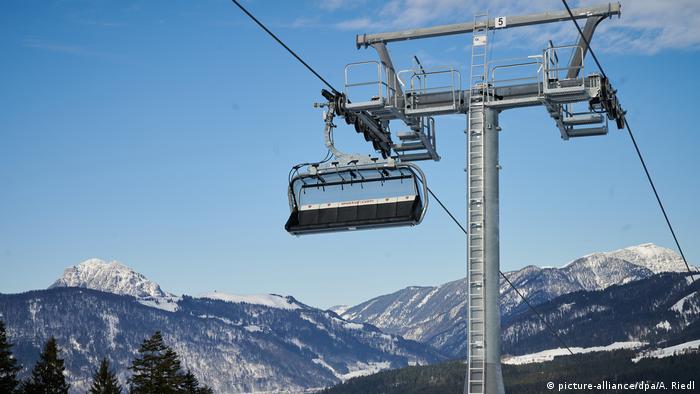
All ski areas in the Austrian provinces of Salzburg and Tyrol are ending the winter season early. Cable car operation will be discontinued as of Sunday (March 15, 2020). Hotels and accommodations will be closed from Monday. The provincial governments said that this should slow down the spread of the virus in the Alpine country. The two provinces account for most leading Austrian ski areas.
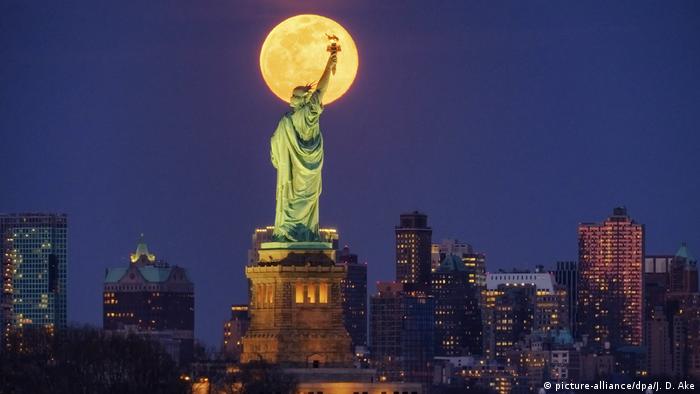
Due to the spread of the coronavirus, the USA is imposing a general 30-day travel ban on people from Europe. The entry ban comes into force on Friday (March 13, 2020) at midnight (local time). It does not apply to US citizens residing in Europe who have tested negative for the pathogen.
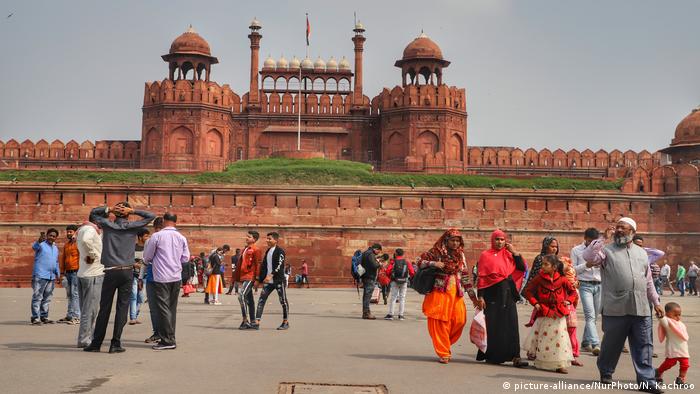
India has declared all tourist visas invalid for 1 month because of the corona virus. Only travelers who are already in the country are allowed to stay, the Indian Ministry of Health announced on Wednesday (March 11, 2020). The entry ban is to last until April 15 for the time being.
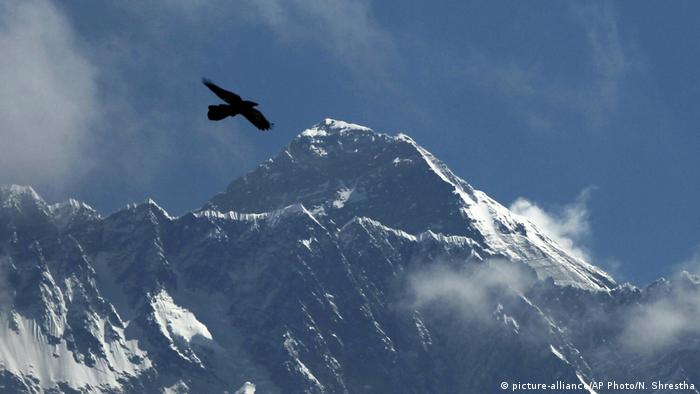
Climbing Mount Everest via the north side has been forbidden by Chinese authorities. The necessary permits for expeditions to the world's highest mountain were withdrawn on Thursday (March 12, 2020).
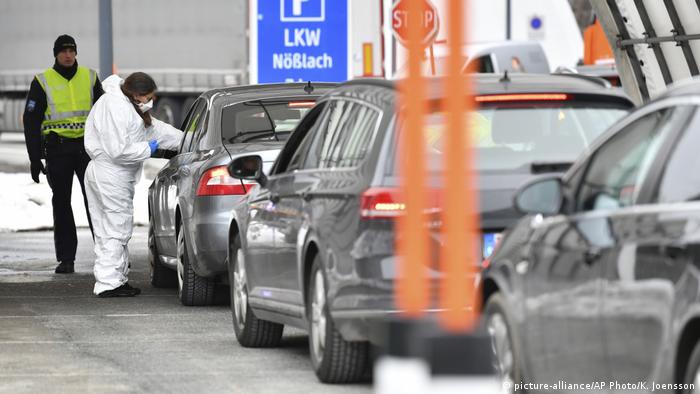
In order to reduce the spread, the border into neighboring Austria can only be crossed from Italy with a medical certificate. Slovenia has closed its border, and Albania has banned Italian air and ferry traffic. Many airlines have cancelled flights to Italy until at least 3 April. Germany, the UK, and Ireland tightened travel recommendations and called on their citizens to leave.
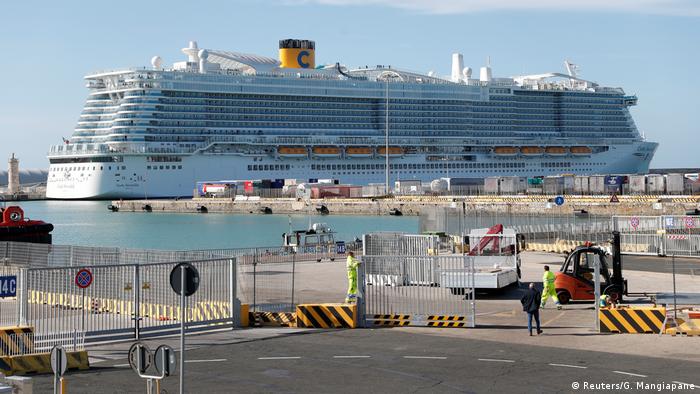
The Costa Crociere shipping company is cancelling all cruises in the Mediterranean for the time being. The cruises will be suspended until April 3, the Italian company announced on Tuesday (March 10). The measure affects thousands of passengers. Ships still operating in the Mediterranean will only call at Italian ports to let passengers disembark.
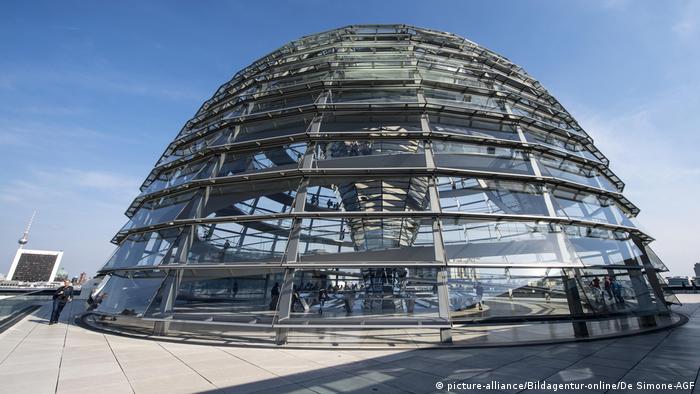
The dome and roof terrace of the Reichstag parliament building in Berlin have been closed to visitors since Tuesday (March 10, 2020) until further notice to prevent the possible spread of the coronavirus. The walkable dome and the roof terrace are visited by more than 2 million people every year, according to the Bundestag.
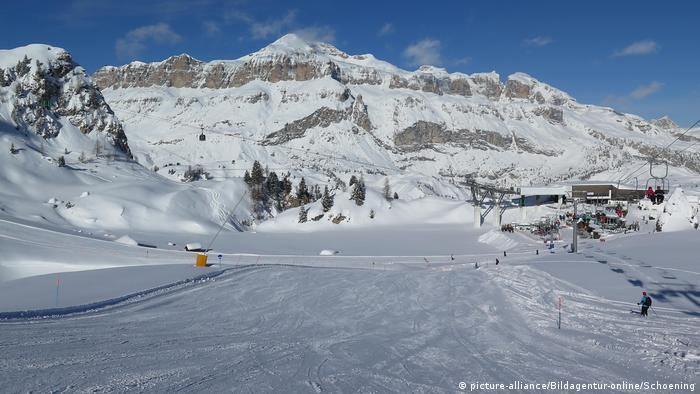
All ski facilities in Italy have been closed since Tuesday (March 10, 2020) due to the corona crisis. Prior to this, hoteliers and cable car operators in the South Tyrol region (photo) had already agreed to close their facilities. South Tyrol is particularly popular with winter sports tourists from Germany and Eastern Europe. The closure is effective until at least April 3.
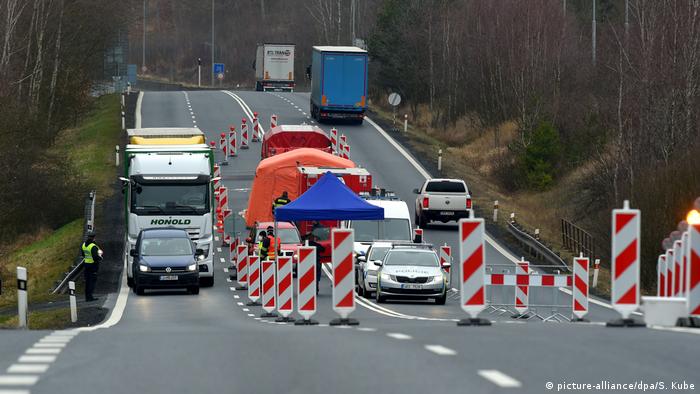
The Czech Republic (picture) and Poland are carrying out checks at the border with Germany to protect against the spread of the coronavirus. Since Monday (March 9), travelers have faced random temperature checks. The German government has warned against travelling to risk areas. And air passengers from China, Japan, South Korea, Iran and Italy will have to expect controls when entering Germany.
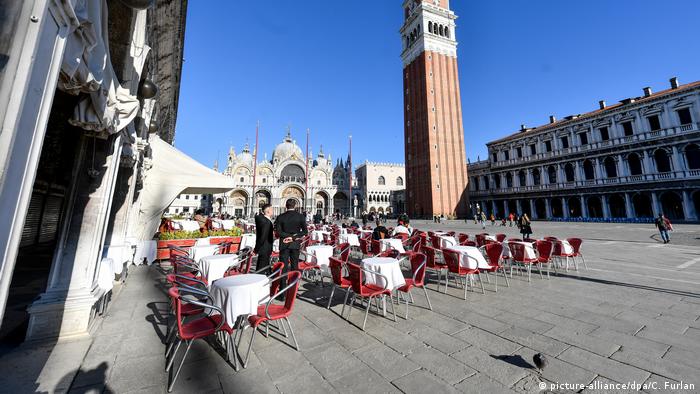
On March 8 the Italian government issued an entry and exit ban for the more than 15 million inhabitants of the northern Italian regions, which include the key business center Milan and the tourist magnet of Venice (photo). Cultural, sporting and religious events are also banned for visitors. Museums, cinemas and theaters remain closed nationwide.
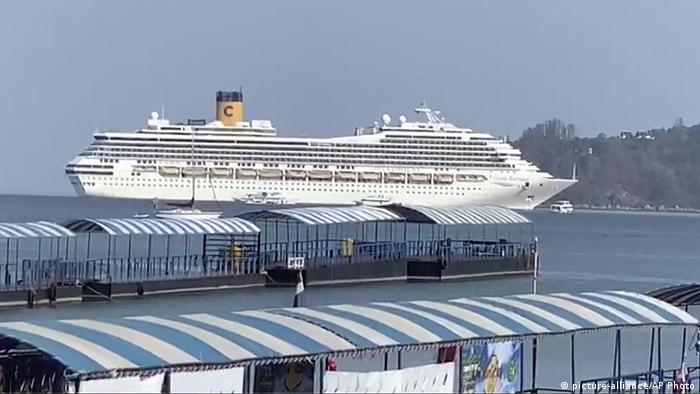
Repeatedly cruise ships have to be quarantined or prevented from docking. After cancellations in Thailand and Malaysia, the Costa Fortuna (photo) with 2,000 passengers, including 64 Italians, has been allowed to enter the port of Singapore. In Oakland, California, 2,000 passengers and 1,100 crew members of the Grand Princess are quarantined because 19 of them have tested positive for COVID-19.
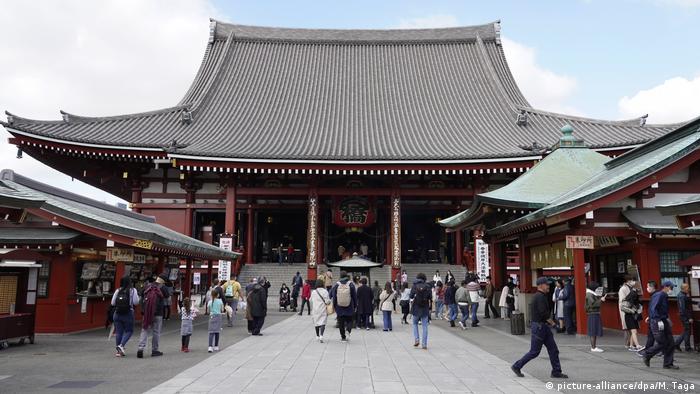
Sights in Asia are particularly affected by travel restrictions for Chinese tourists. Hotspots such as the Senso-ji temple (picture) in Tokyo and the temple complexes of Angkor Wat in Cambodia are reporting a sharp drop in visitors. On March 9, the Ministry of Tourism in Thailand reported a 44% drop for February. Tourism accounts for 11% of the gross domestic product.